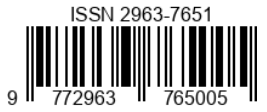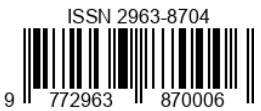Penerapan Pemberian Grasi Terhadap Terpidana Korupsi Oleh Presiden
DOI:
https://doi.org/10.55606/jhpis.v3i3.3896Keywords:
Clemency, Corruption Convict, PresidentAbstract
Clemency is a pardon in the form of a change in commutation, reduction or elimination of a criminal offense for a convicted person given by the president based on the consideration of the Supreme Court. The granting of clemency by the president is a form of humanity and justice towards the citizens of the country. And every prisoner has the same right to apply for clemency to the president. Granting this clemency is a fulfillment of human rights and is the president's prerogative in granting forgiveness. However, there needs to be a classification of the crime to provide an opportunity to apply for clemency. Such as the crime of corruption which is an extraordinary crime. The criminal act of corruption is a crime that not only harms one person, but also harms the State and people of Indonesia. Of course, the aim of this research is to find out certain conditions for granting clemency to corruption convicts by the president. This research method uses normative juridical research methods. By referring to the law on clemency and criminal acts of corruption as well as the presidential decision to grant pardon to corruptors. The findings of this research are that it provides special considerations in submitting requests for clemency and evaluation so that the president and the Supreme Court can logically consider their decisions in looking at the convict's case.
Downloads
References
Ahmad Mahyani, ‘Harmonisasi Hak Pistolee Dengan Ketentuan Fasilitas Narapidana’, DiH: Jurnal Ilmu Hukum, 15.1 (2019)
Amiruddin & Zainal asikin, pengantar Metode Penelitian Hukum, 2012, Raja Grafindo Persada Jakarta
Donny Michael Situmorang, Penarapan Hak-Hak Narapidana di Lembaga Pemasyarakatan Perspektif Hak Asasi Manusia. Jurna Penelitian hukum De Jure 17.2 (2018)
Hendarmin Ranadireksa, 2009, Visi Bernegara Arsitektur Konstitusi Demokratik, Bandung
IGM Nurdjana, Sistem Hukum Pidana dan Bahaya Laten Korupsi (Problematik Sistem Hukum Pidana dan Implikasinya pada Penegakan Hukum Tindak Pidana Korupsi), Total Media, Yogyakarta, 2009
Jimly Asshidiqie, Pengantar Ilmu Hukum Tata Negara, PT RajaGrafindo Persada, Jakarta, 2011
Romli Atmasasmita, dalam Lilik Mulyadi, Tindak Pidana Korupsi di Indonesia (Normatif, Teoritis, Praktik dan Masalahnya), PT. Alumni, Bandung, 2007
Serlika Aprita dan Yonani Hasyim, Hukum dan Hak Asasi Manusia, Bogor: Mitra Wacana Media, 2020
Soeryono Soekarto, pengantar penelitian hukum. (jakarta: UI Press, 1984)
Sri Rahayu Wilujeng, Hak Asasi Manusia: Tinjauandari Aspek Historis dan Yuridis.
Undang-Undang Nomor 22 Tahun 2002 tentang Grasi
UUD RI 1945 Pasal 6A
Downloads
Published
How to Cite
Issue
Section
License
Copyright (c) 2024 JURNAL HUKUM, POLITIK DAN ILMU SOSIAL

This work is licensed under a Creative Commons Attribution-ShareAlike 4.0 International License.

















